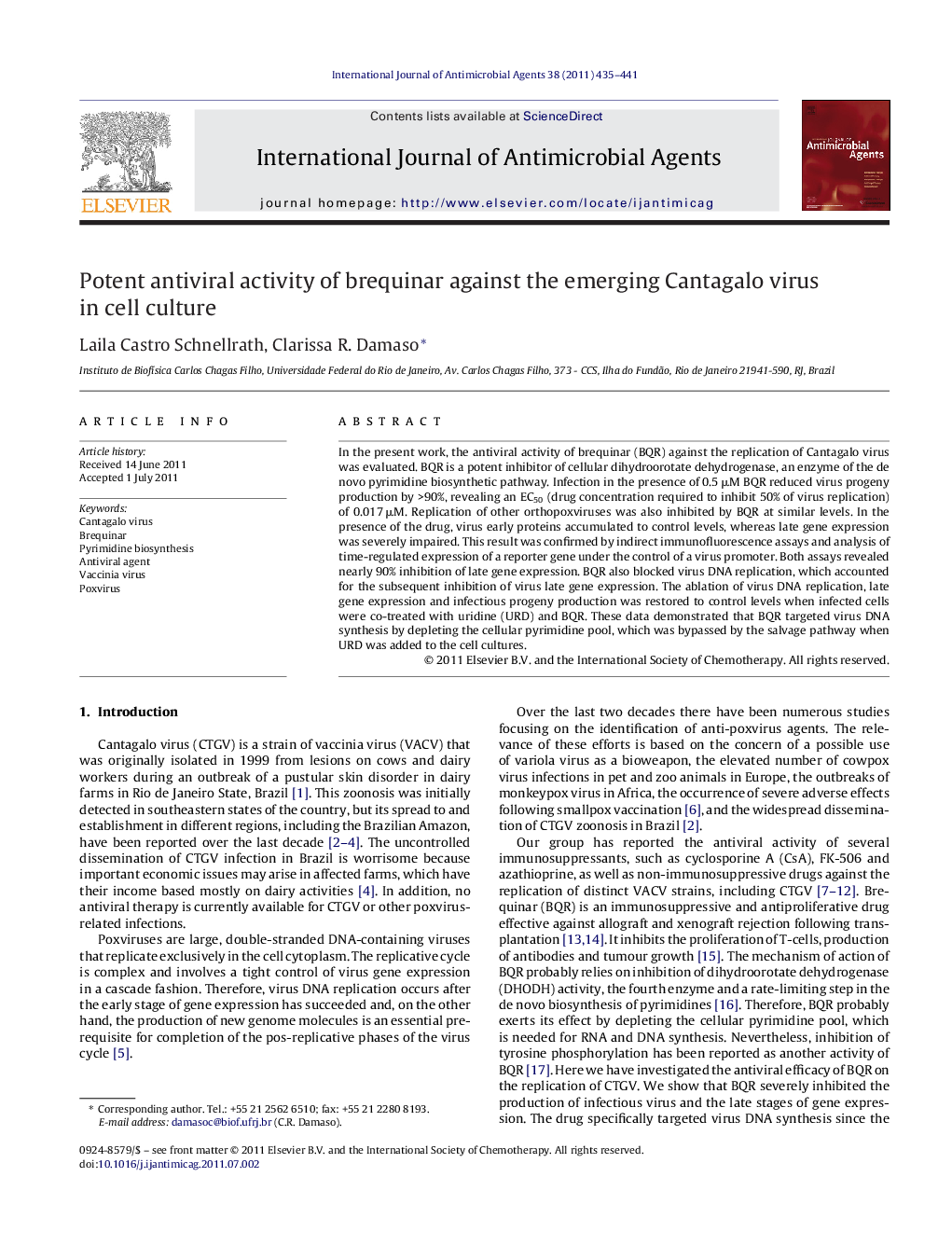| Article ID | Journal | Published Year | Pages | File Type |
|---|---|---|---|---|
| 6118266 | International Journal of Antimicrobial Agents | 2011 | 7 Pages |
Abstract
In the present work, the antiviral activity of brequinar (BQR) against the replication of Cantagalo virus was evaluated. BQR is a potent inhibitor of cellular dihydroorotate dehydrogenase, an enzyme of the de novo pyrimidine biosynthetic pathway. Infection in the presence of 0.5 μM BQR reduced virus progeny production by >90%, revealing an EC50 (drug concentration required to inhibit 50% of virus replication) of 0.017 μM. Replication of other orthopoxviruses was also inhibited by BQR at similar levels. In the presence of the drug, virus early proteins accumulated to control levels, whereas late gene expression was severely impaired. This result was confirmed by indirect immunofluorescence assays and analysis of time-regulated expression of a reporter gene under the control of a virus promoter. Both assays revealed nearly 90% inhibition of late gene expression. BQR also blocked virus DNA replication, which accounted for the subsequent inhibition of virus late gene expression. The ablation of virus DNA replication, late gene expression and infectious progeny production was restored to control levels when infected cells were co-treated with uridine (URD) and BQR. These data demonstrated that BQR targeted virus DNA synthesis by depleting the cellular pyrimidine pool, which was bypassed by the salvage pathway when URD was added to the cell cultures.
Related Topics
Life Sciences
Immunology and Microbiology
Applied Microbiology and Biotechnology
Authors
Laila Castro Schnellrath, Clarissa R. Damaso,
